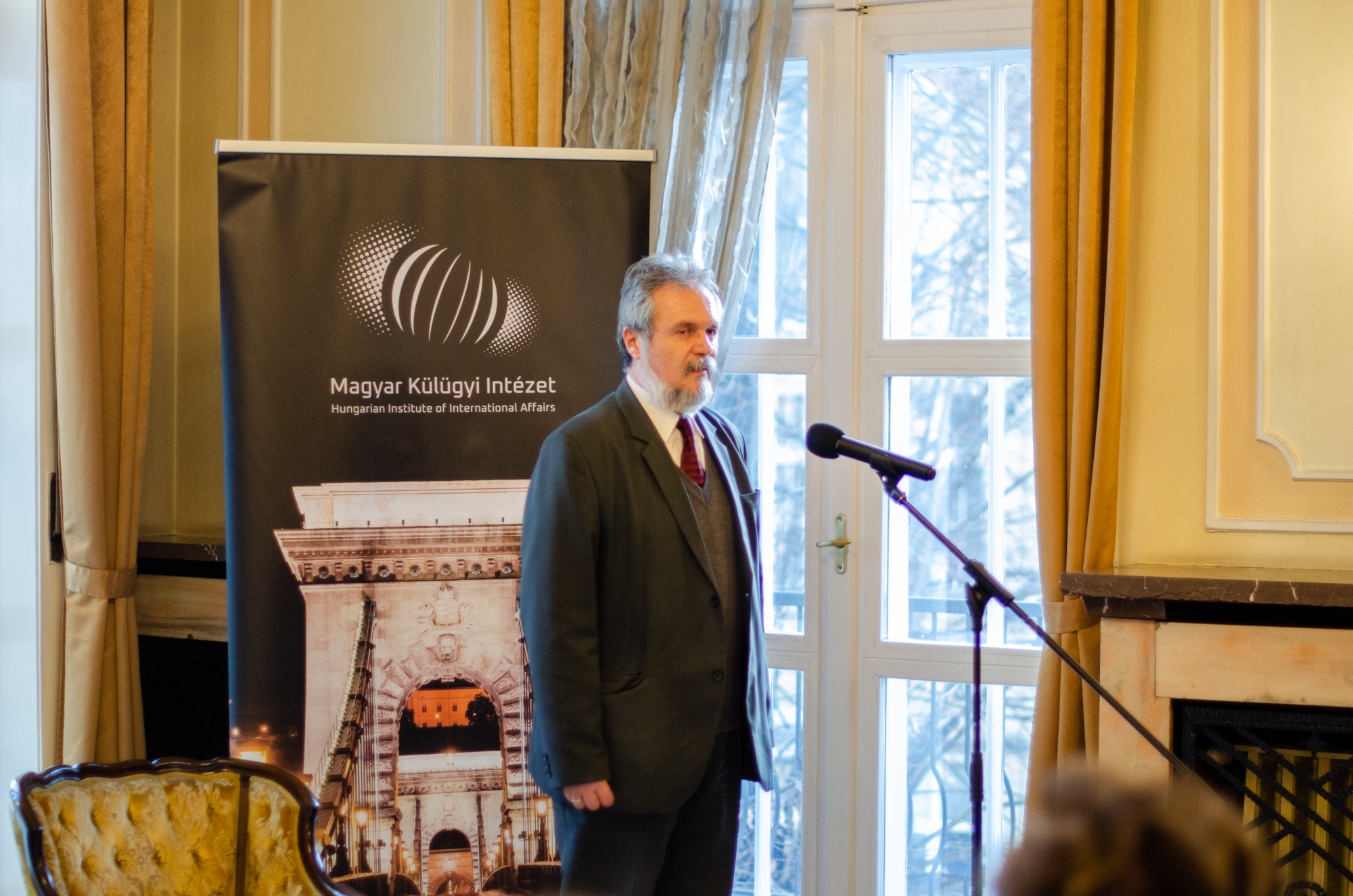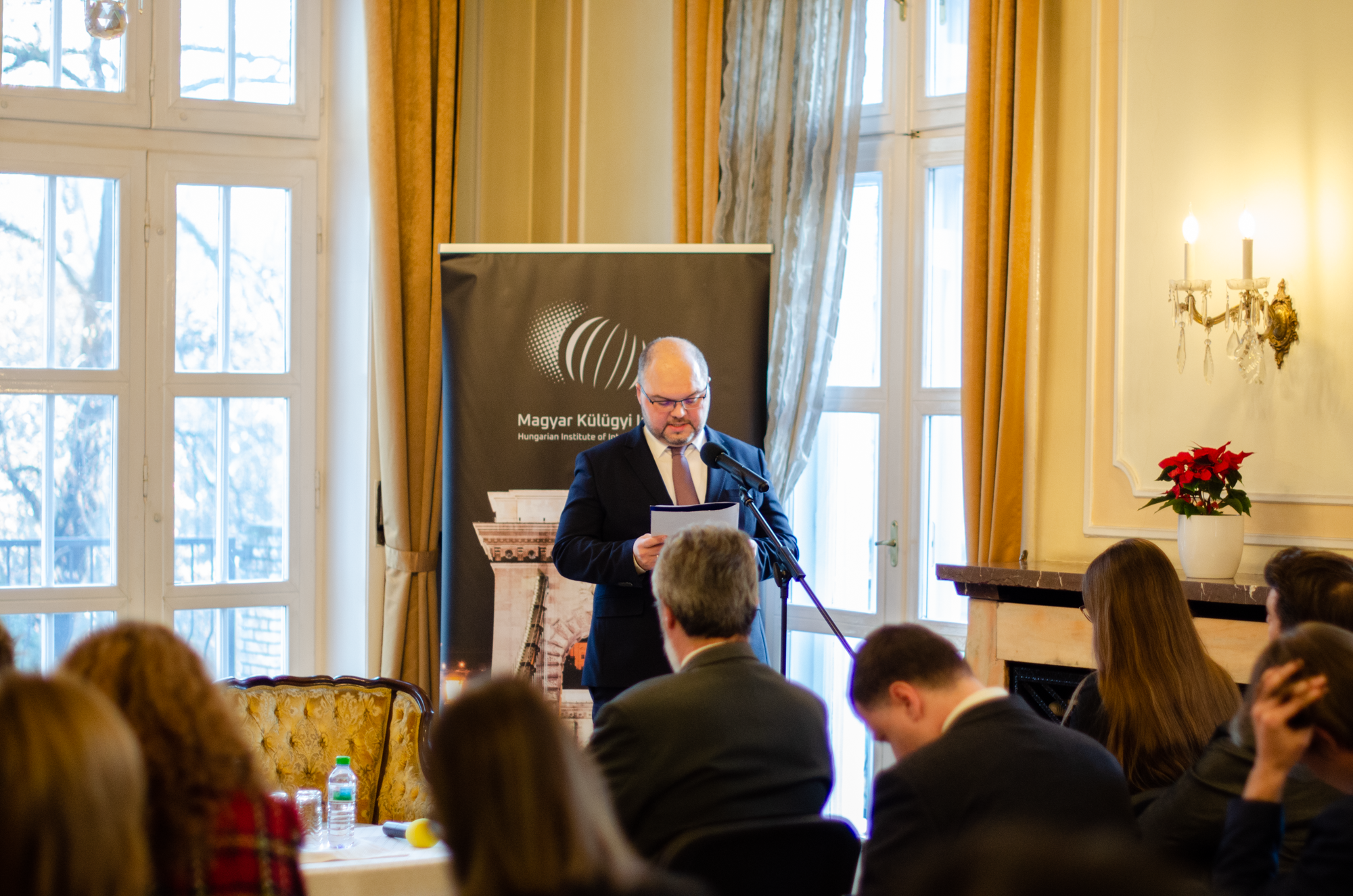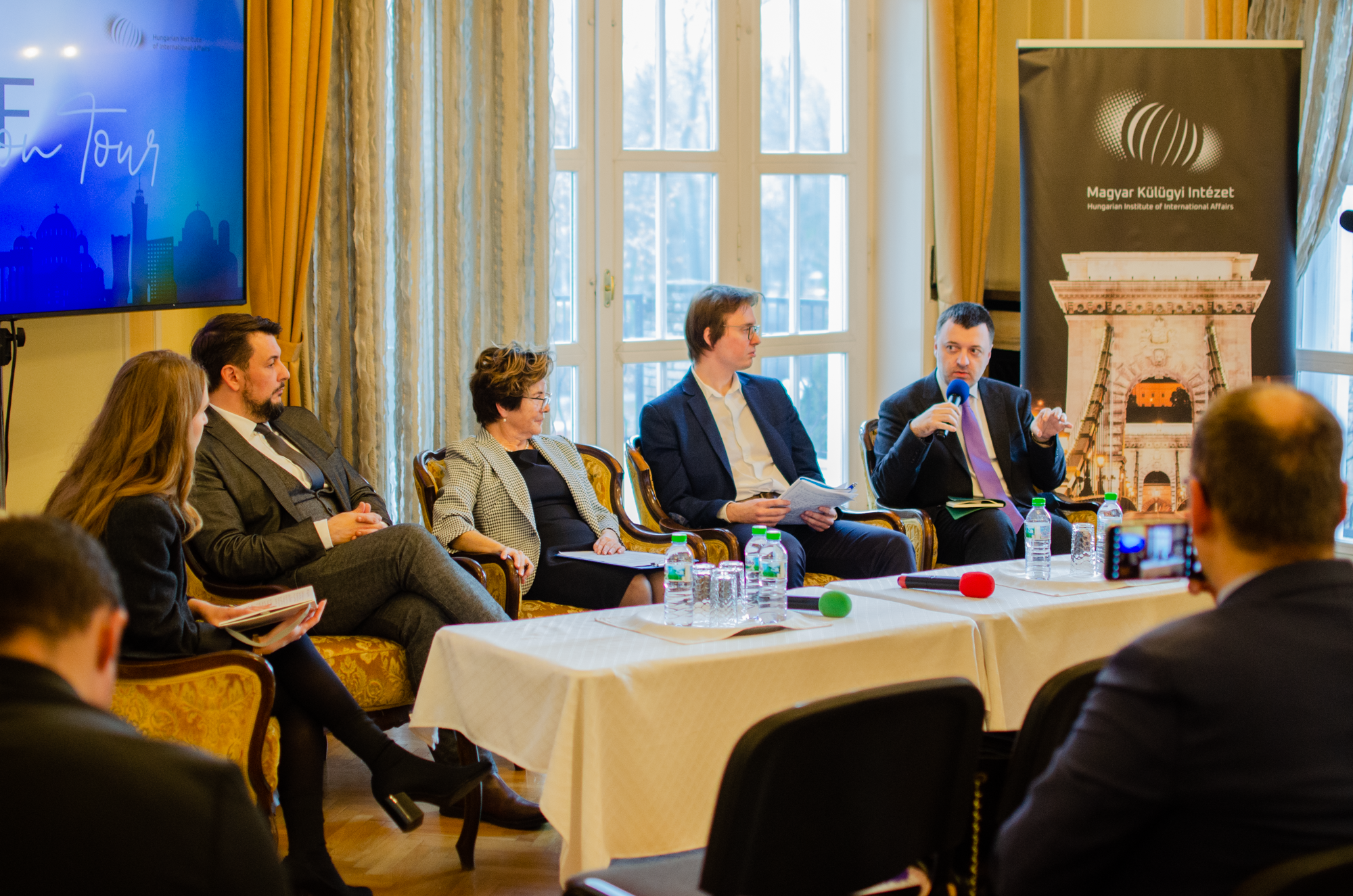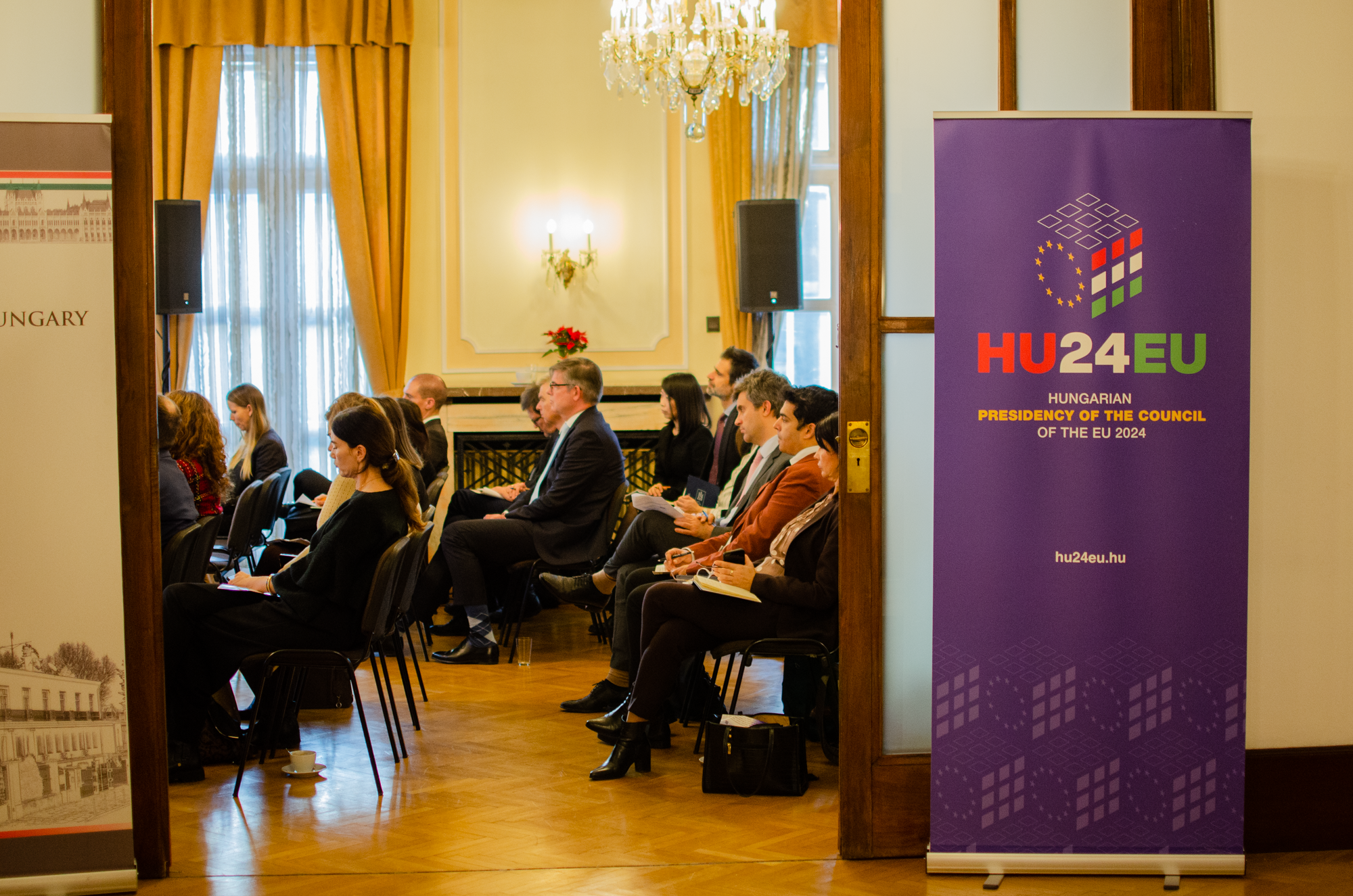Following its highly successful Zagreb stop, the Budapest Balkans Forum on Tour 2.0 continued in Sofia. The Hungarian Institute of International Affairs (HIIA) and the Hungarian Embassy in Sofia held a conference entitled “Enhancing Connectivity within the EU: the Schengen Area Enlargement” on 9 December 2024, as part of Hungary’s EU Presidency programme. Accordingly, the event focused on the accession of Romania and Bulgaria to the Schengen Area, one of the key priorities of the Presidency programme.
The conference was opened by Miklós Boros, Ambassador of Hungary to Sofia, welcoming the Budapest Balkans Forum (BBF) on Tour to Bulgaria, the event series which supports the EU integration of the Western Balkans. He stressed that the integration of the region is also a top priority of the Hungarian Eu Presidency and expressed his pleasure at the prospect of a successful conclusion of the Presidency programme, with Romania and Bulgaria finally joining the Schengen Area, which will bring the event to the best possible timing.
On behalf of the Hungarian Institute for International Affairs, Ákos Mernyei, Advisor to the President of HIIA and Ambassador for Global Public Diplomacy Engagement welcomed the guests. He stressed that the BBF and the series of events leading up to it will enable Hungary to support the region’s EU accession aspirations in a worthy manner, by channelling the views and ideas of local experts and decision-makers into the discourse surrounding the topic. Turning to the event in Sofia, he stressed that the Schengen Area, the possibility of free travel without border controls, is one of the EU’s greatest achievements and the heart of EU integration. He also added that the functioning of the system faces many challenges, but it is precisely in times of crisis like these that the political will to return to the normal functioning of the Schengen Area really needs to be demonstrated.
Subsequently, Elena Shekerletova, Deputy Minister of Foreign Affairs of Bulgaria, delivered a keynote speech, starting with the fact that her country has been striving to join the Schengen Area since it became a member of the EU. She stressed the importance of free and non-discriminatory travel without restrictions for all EU citizens. Bulgaria is committed to creating the internal security conditions for Schengen membership and to ensuring the protection of its external borders. In this context, it will play an active role in the fight against illegal migration, smuggling of people and other illegal cross-border activities. The deputy minister continued his speech on the economic aspects of Schengen accession, underlining that the removal of unnecessary obstacles to free movement will bring significant economic benefits, saving valuable time in both goods and passenger transport. Accession to the Schengen Area can also significantly improve the investment climate in Bulgaria, and they are therefore very confident that the decision to join will be formally confirmed soon.
The opening speeches were followed by a Chatham House panel discussion, which included an exchange of views at expert level on the road ahead of Bulgaria’s and Romania’s accession to the Schengen Area and the expected impact of Schengen membership. All speakers agreed that there were political reasons behind the lengthy decision-making process, which went beyond the issue of the two countries’ Schengen accession. Although both countries have been ready to join for more than a decade, domestic political interests in some member states prevented a unanimous decision. This highlights not only the need to review the practice of national vetoes, but also the unequal political and decision-making positions among EU Member States, which could lead to further frustration in negatively affected Member States. In this light, it is understandable how important the achievement of Schengen membership is in strengthening the two countries’ sense of belonging to the European family.
In addition to the political aspects, the economic dimension was also highlighted during the panel discussion. The speakers recalled that the engine of the European Union is economic integration. The economic benefits to be gained by removing borders between Member States’ markets were a major motivation for the creation of the Schengen area. Bulgaria has suffered serious economic losses over the years due to non-accession, both in terms of additional costs for economic operators and in terms of the possibility of several infrastructure development projects, which the country badly needed to improve its transport network. Membership could thus contribute not only to improving the economic and infrastructural situation of the two countries concerned, but also to strengthening the EU’s competitiveness. Hungary, as a neighbouring country, can also count on increased economic relations with Romania, and the Schengen membership of Bulgaria and Romania could have positive spill-over effects on the neighbouring Western Balkans region too.
As far as migration processes and demographic trends are concerned, the speakers do not expect any major changes. Bulgaria and Romania, in cooperation with EU partners, will continue to protect the EU’s external borders, putting a stop to illegal migration. Population decline and emigration in the wider region is continuing despite the restrictive effect of borders, and is unlikely to be affected by Schengen accession.






